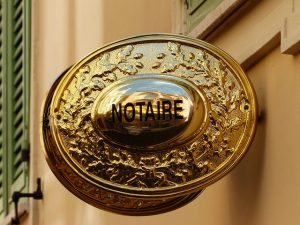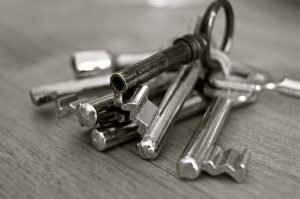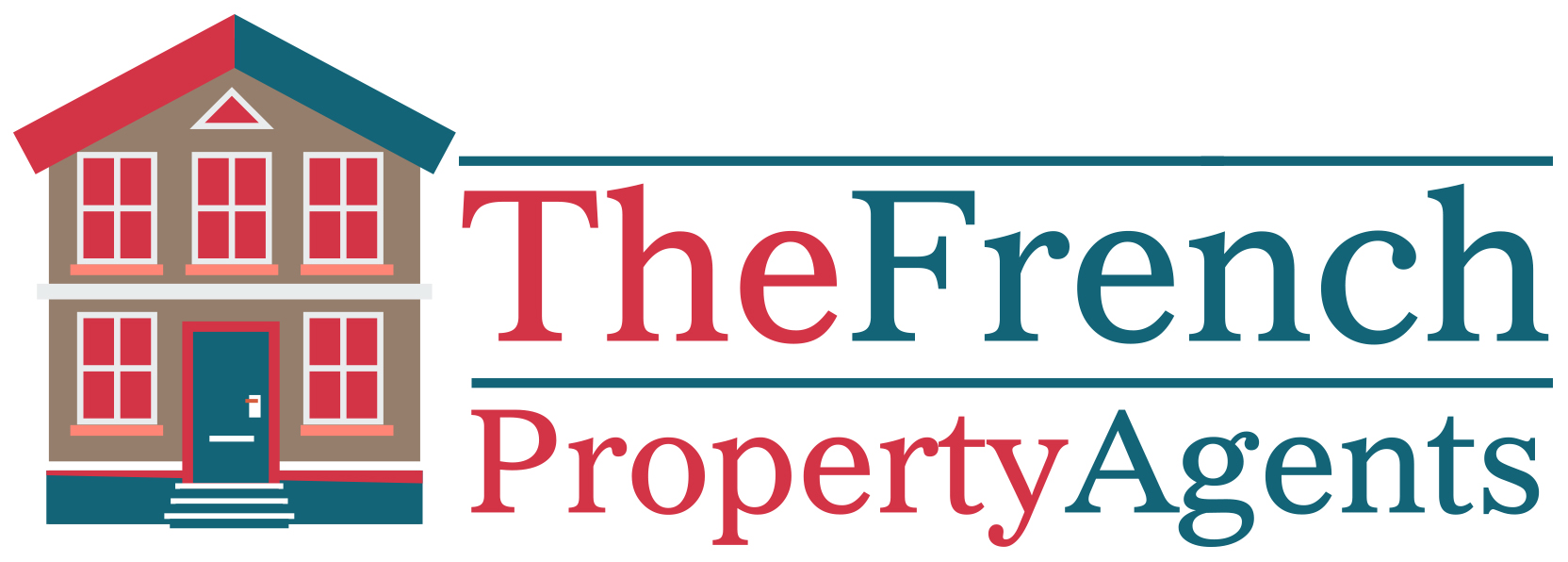Whether you are looking to set up a home or business, bring up a family or retire with a glass of wine in hand, France remains an excellent choice for those buying property. Whatever your reasons, we have created a superb guide that will tackle the key issues or questions you may have, and help you to know exactly how to begin buying a house in France.
In truth, there are some key differences between the housing market in the USA or UK and France so we will endeavour to point them out. Without further ado, let’s head into this guide.
Where to buy?
 When it comes to French property, they can be sold through a public notary, privately, or through estate agents. Because it is familiar, the majority of overseas buyers tend to go through estate agents; you are also likely to find an English-speaking agent this way. Of course, you will need to ensure that any chosen estate agent is registered and in France, you need to look out for FNAIM, UNPI, or SNPI. As long as you see this in their office, you can move ahead with confidence, as they come with a number of professional guarantees.
When it comes to French property, they can be sold through a public notary, privately, or through estate agents. Because it is familiar, the majority of overseas buyers tend to go through estate agents; you are also likely to find an English-speaking agent this way. Of course, you will need to ensure that any chosen estate agent is registered and in France, you need to look out for FNAIM, UNPI, or SNPI. As long as you see this in their office, you can move ahead with confidence, as they come with a number of professional guarantees.
To prevent conflict between different agents, you may be asked to sign a ‘Bon de visite’ and this essentially confirms that the agent showed you around the property. It is perfectly normal, some agents do it, some don’t.
Prices of French Property
When buying a house in France via an estate agency, you will notice that the advertised prices normally include agent’s fees; the letters ‘FAI’ will show this to you. This means ‘frais d’agence inclus’, or ‘agency fees included’. Notary fees, however, are not normally included, so you will need to factor these on top. To be sure, you should always ask what fees are included and what the final price will be.
Make an offer
Just as you would at home, you are welcome to make offers on French property. If a house has been on the market for a long time, this suggests that the owners would be willing to listen to lower offers to start. It is also worth remembering that there is usually some margin of negotiation with French property prices; as someone once said to me years ago, the very first agent I ever dealt with, “10% isn’t impolite.”
Surveys
Here, you will notice one of the biggest changes because the ‘surveyor’ profession, by its very definition, doesn’t truly exist in France. That said, in recent years, there have been more English-speaking surveyors to contact or you could find a local builder to assess costings for any repairs. If renovation is needed, always get an estimate before purchasing. Also, be sure to ask for a ‘clause suspensive’ if you don’t have enough time for a survey before signing a contract. In essence, this means that you can reverse the purchase should the property not fall to a certain standard.
Other things to think about
Before purchasing, be sure to ask whether there are any plans to build near your land in the coming months and years. Whether it is private or communal, the last thing you want after moving in is the erection of a huge barn outside your back door.
Notaire
As soon as a price is agreed on a property, the contract process can begin. Whilst an estate agent might begin the process, overall it will be controlled by a notaire as, by law, they are the only people who can perform conveyancing in the country. When buying a House in France, there are two key documents – the Compromis de Vente and the Acte Authentique, and we will take you through these a little later.
Notaire Fees – Generally, the notaire’s fees will be around 2-8% of the net property price – as the property price rises, or as the complexity of the sale increases, so does the percentage charged by the notaire. When buying through an agent, the cost may be included in the price but you will have to check this to be sure.
By law, the Notaire must be impartial and act for both sides of the transaction. Normally, the estate agent will recommend a local Notaire or you can choose one yourself. If you are using two Notaires they will simply split the fees, so it won’t cost you any more to have your own Notaire (but they Notaire might be slightly grumpier as they are only getting 50% of what they would normally!) With that being said, it is normally most efficient to have one single Notaire working on the transaction. Furthermore, you are also welcome to gather legal advice from a professional either in France or in the UK; there are a number of English-speaking property lawyers who can give you advice, even if it is just reassurance when dealing with legally-binding contracts in French. Although this will help you with the purchase, you will need to consider the charge because you will be responsible for the cost as well as the Notaire’s fees. In reality, if you have a simple purchase and/or a decent estate agent and an English-speaking Notaire, you won’t need a separate lawyer – save the money.
Translation
Over the years, much of France has adopted a curriculum which teaches English in schools which means that many Notaires will have at least a basic understanding of the language. With that being said, all of the documentation will be in French so this is something to bear in mind. If you are unsure about anything, you should seek professional translation. In France, you will find many professional translators who are qualified to deal with legal documents so this can be useful when buying a house in France. Also, bear in mind that most conveyancing documents are fairly standard; there isn’t usually anything in there to catch you out.
The Compromis de Vente (First Contract)
As mentioned previously, there are two key conveyancing documents you will need to understand and the first sets out the basic agreement between the two parties, the equivalent of ‘exchanging contracts’. For overseas purchasers normally a 10% deposit will be required from the buyer, which is held by the Notaire and paid when the Compromis is signed. Once both parties have signed, it becomes legally binding and can only be reversed with a clause suspensive (see below).
In the contract, a target date will be set for the signing of the main contract (Acte Authentique), which is usually 8-12 weeks from the date of the Compromis. This document is the biggie. For this first contract to be drawn up by the Notaire, you will need to provide your marriage papers, passport, and divorce papers; you will also need to bring financial details if you are using a loan for the purchase.
Clause Suspensive (Conditional Clauses)
A clause suspensive is a caveat you can add to the sales contract, which will allow you to back out of the deal in particular circumstances – but they need to be stated before the first contract is signed. If the vendor accepts them, you can add multiple different clauses (but the vendor does have to accept them). Of course, a mortgage clause will automatically be entered into the agreement as a clause suspensive so you don’t have to go ahead with the purchase if your mortgage application is denied. Aside from this, you could add potentially add clauses relating to planning permission, or perhaps a satisfactory survey you require before purchasing. When you first look to make an offer, you should discuss these clauses with the agent – they will advise you which are likely to be accepted by the vendor when buying a house in France.
Over the years, there have been a number of disastrous cases that could have been avoided with a simple clause in the first contract. It is also important to note that the vendor, under law, has to pay for lead, asbestos, energy efficiency, and termite reports. After they are grouped together, they are called the Dossier de Diagnostic Technique (DDT). Furthermore, all properties with swimming pools must include a safety report to be included with the DDT in the Compromis de Vente.
Cooling-Off Period
After the Compromis has been signed by both parties, you have a cooling-off period of ten days. If you want to withdraw without a penalty, you can do so during this time; the vendor does not have this option. As soon as the ten days are up, the contract is binding – and contracts have essentially been ‘exchanged’.
Transferring Funds
In essence, this cooling period has been designed so that the buyer can arrange the necessary funds to pay the deposit. Normally, a deposit of 10% is required (for overseas buyers) and this amount can be lost if you pull out of the deal for any other reason than one of the clauses in the Compromis de Vente.
Authority Searches
After the Compromis has been signed, the notaire will complete a variety of different searches including on the property, right of ownership, rights of way, and boundaries. As we mentioned earlier, you will have to complete planning permission research yourself as this is not included in this section. If you wish to do this, the easiest way is to ask your agent or visit the local Mairie.
Length of House-Buying Process
From start to finish, the first offer to the signing of the final contract, the process should take around three to four months.
Tax and Legal Issues
If you have any concerns regarding residency issues, inheritance law, income and capital gains tax, or anything else, you should always speak to an English-speaking legal adviser – there are plenty available.
Acte Authentique (Final Contract)
When everything has been prepared and the aforementioned criteria has been met, you will be notified of the date for the signing of the final contract. Although you should be there to sign the contract yourself, a power of attorney can step in if you aren’t able – it is common practice to ask someone in the Notaire’s office to sign on your behalf via a procuration (power of attorney).
 Before you sign, be sure to arrange a viewing of the property because the contract actually has a clause stating that you are buying the property ‘as seen’ on the signing date. If you walk in to find windows missing, this should be brought up before signing. For the balance to be transferred to the notaire’s account, you will need to plan ahead and arrange it for the signing date. Until all of the fees involved in the transaction have been received by the notaire, the property will not be yours.
Before you sign, be sure to arrange a viewing of the property because the contract actually has a clause stating that you are buying the property ‘as seen’ on the signing date. If you walk in to find windows missing, this should be brought up before signing. For the balance to be transferred to the notaire’s account, you will need to plan ahead and arrange it for the signing date. Until all of the fees involved in the transaction have been received by the notaire, the property will not be yours.
When you have confirmation that the funds have been received, and the Acte Authentique has been signed by all parties, you can sit back and relax knowing that you have just completed the process of buying a house in France!
